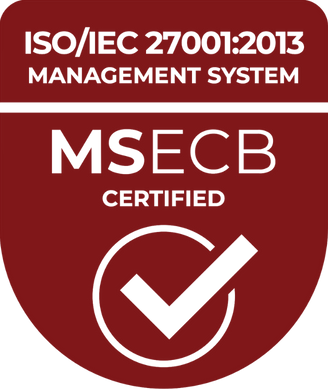Softhouse – creating long-term value by bringing together best practices from two countries
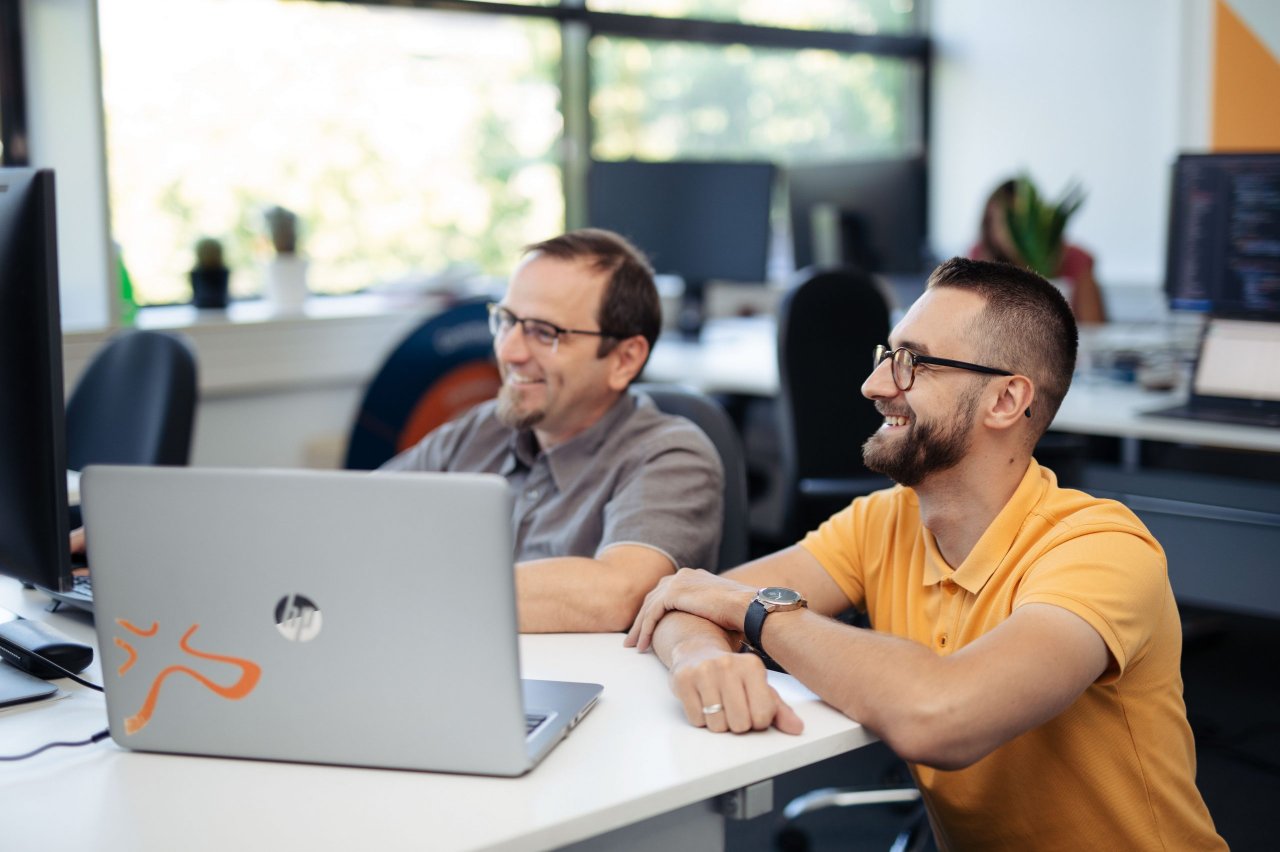
Himzo Music is the founder of the company’s office in Sarajevo, which has grown to 35 employees and aims to establish itself in another location in Bosnia. Himzo took the opportunity to bring together two countries and cultures to create something unique.
Himzo is originally from Prijedor, located in northwestern Bosnia. At the age of 17, Himzo was forced to flee his hometown Prijedor. During mid 90s, Prijedor went from being an idyllic town, to a place tormented by ethnic cleansing, massacre and terror. Many families, including Himzos, lost loved ones as a result of these mass atrocities.
In this blog post, Himzo tells us about his journey and how he managed to establish Softhouse in the Balkans.
I was 17 and had just finished my third year of a four-year electrical engineering high school program when the war in Bosnia broke out. Together with my mother and little brother, I was forced to leave our hometown and Bosnia. We managed to get to Croatia where we spent about a year as refugees until I came of age. Then my family and I found an opportunity to leave Croatia for Sweden. On the first of March 1993, we arrived in Ystad. We had several temporary residents and ended up in Hörby. I was finally able to resume my schooling, but since I hadn’t acquired a high school diploma in Bosnia, I had to go through the entire high school at Komvux.
A strong will to grow and advance
In 1995 I met my wife and a year later we welcomed our son Benjamin. We were young and didn’t have an income, and we knew that we needed a plan in order to create a good life for us and our son. We packed our belongings and moved to Malmö where I got a job as a taxi driver. Night shifts were interspersed with Komvux and university.
In the early 2000s, obtained my B.Sc degree in computer and electrical engineering. Due to the impending IT crash, finding a job was very difficult. My solution to the problem was starting my own company, developing websites in collaboration with various advertising agencies. At the same time, I continued to work as a taxi driver to increase our budget. In 2003, I got my first “real” job as a software developer at Teleca in Malmö, and this is where my career began to take off. All previous experiences contributed to my ambition and desire to learn more, grow and advance.
In 2011, After eight years at Teleca (which became an AU-System, later acquired by Cybercom), I began my journey at Softhouse.
A big-hearted company
To end up at a compassionate and entrepreneurial company like Softhouse was fantastic, and it is what I have always wanted. In addition to working with software development, sales, and customer care, I had the opportunity to have team-and delivery responsibilities.
Given my background, and my journey from Bosnia to Sweden, I felt that I wanted to contribute to something bigger. It has always been a dream of mine to work (and live) in both Bosnia and Sweden, and to create long-term value for people by bringing together the best practices and cultural aspects of both countries.
Bosnia has a lot to learn from the Swedish way of doing business. The Swedes put a lot of emphasis on having the “right” attitude towards people and society at large, and providing everybody the same prerequisites to grow and develop, both in a professional and private context.
Softhouse Balkans will promote cooperation between Sweden and Bosnia and combine the best of both countries to get people closer to each other through personal contacts and business.
Similar ways of working
The two countries have many things in common when it comes to the actual development of a software company. For example, administrative and operational work, as well as legislation and regulations. Sweden, however, is more digitally advanced, meaning that many processes have been digitised, making them more efficient.
”I saw an incredible opportunity to do something that can create value, both commercially and culturally, in both countries.”
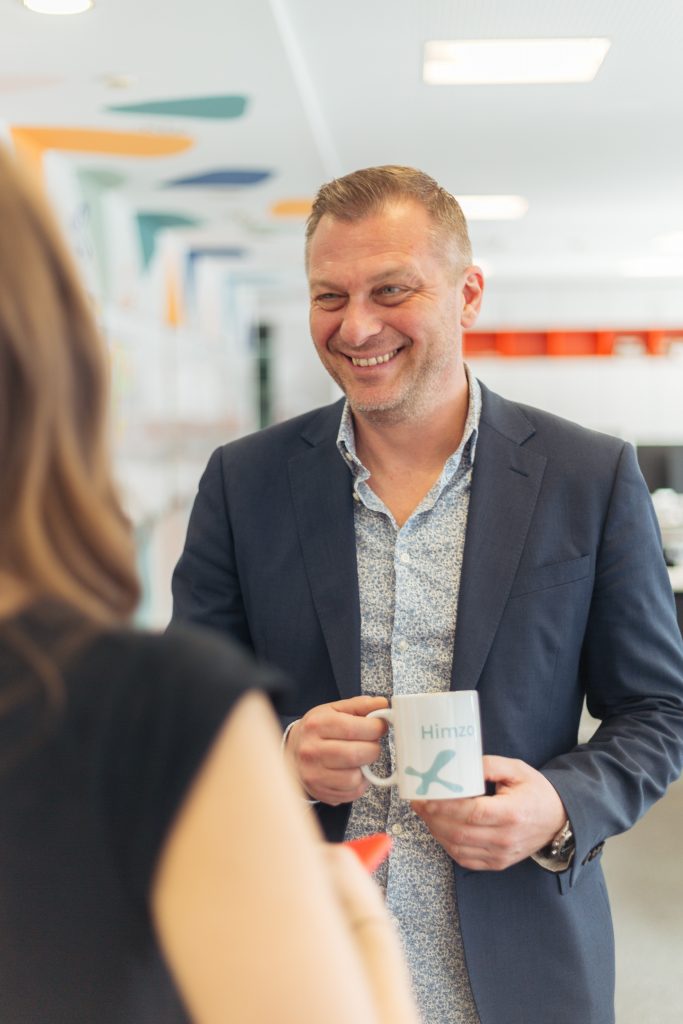
The cultural aspects of doing business, however, imposes great challenges. The Scandinavian way of doing business is very different from the rest of Europe. And the further south in Europe you go, the bigger the difference. In Sweden, you are taught from an early age that “the team comes before the self”. Dialogue and negotiation are two foundational elements of society and work, and consensus is something that you always strive for. Hierarchies are linked to responsibility and role – rather than things such as gender and age. Further, people trust authorities and the company they work for.
Personally, I think the Swedish working culture is fantastic, and the pandemic has clearly shown that these cultural aspects are very valuable within an organization. In Bosnia, our biggest challenge is showing that the same organisational and managerial concepts can work here. The Swedish way of working is a recipe for success, and it builds a long-term and sustainable culture. That is why we are working hard to create and instilt these values here in Bosnia, and consistently setting a good example.
Our office in Sarajevo is characterized by a positive atmosphere filled with laughter, and we highly value the well-being of our employees. We are proud of the positive enviroment and the community that the we have managed to build. We have a long journey ahead, but we are taking steps in the right direction.
The importance of trust
A number of years ago we met a senior developer who had worked at several other companies in Bosnia. After going through our demanding interviews, we decided that we had to hire him. The decision to hire him was not only made based on his past experiences and skills, but also his interpersonla qualities. We shared the same values, visions, and dreams, and we felt that he could contribute to the further development of our vision internally. Once he had started, he did all the tasks exactly as we expected. His commitment to the company and his colleagues, however, did not materialize. He was a quiet observer for several months and we wondered how we could have made such a misjudgment.
But suddenly, after a couple of months, something switched. He opened up and took an active part in everything. He came up with excellent ideas and helped our younger employees. I found it hard to understand what had happened. During a joint lunch, he told me that he had a great onboarding and really enjoyed working for us, but he was so certain that there was a “catch”. He therefore waited to see what the catch was. The reason to this was because there had always been a “catch” at the companies that he had previously worked for. When he realized that there was no catch, his trust and confidence grew, further unleashing his full potential.
We have previously seen the same kind of caution amongst our customers. It often happens that customers are hesitant about a collaboration. Sometimes due to bad experiences with outsourcing software development. This is partly manifested in the high requirements presented to us. But there always comes a moment when our customers see the great results. They quickly change their attitude, and many end up becoming long-term loyal customers.
Getting to witness these changes is truely one of the best parts of my job. I am extremely proud to be the one who has made it possible to build bridges between people and two fantastic countries.
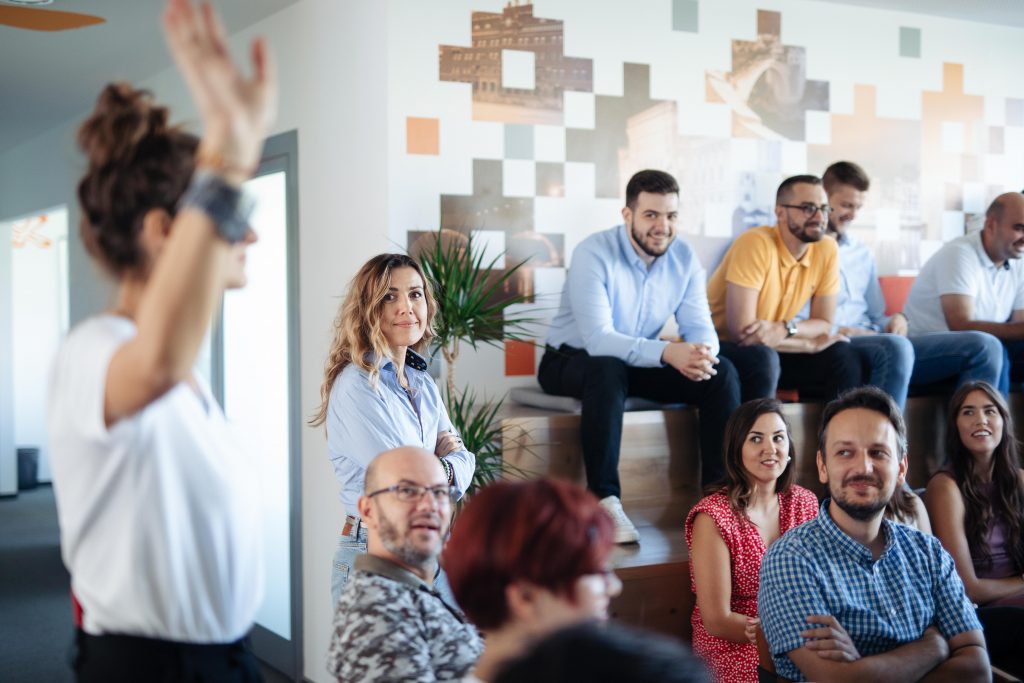
The future is bright
The typical customer collaboration usually consists of a team delivery that extends over several years. All our customers, except one, are domiciled in Sweden. We act as their technical partner, taking responsibility of the entire delivery process. Our teams usually have key roles, such as architect and Scrum Master, and Product Owner in some cases in the projects.
The size of our customers varies – from large companies in the Sandviken Group to smaller companies. We work with product development within IoT, booking systems for conference rooms with associated hardware, control modules for electricity generators, face recognition, and integration of these with various entrance systems, training, and recruitment platforms. We use various languages and frameworks, but C / C ++, .NET and various JavaScript frameworks are dominant.
Finances are quite strenuous for start-ups, and this was also the case for us. We have, however, been able to achieve annual economic growth of 30 percent, which we are very proud of. This proves that our chosen strategy is leading us in the right direction. The economic result gives us the freedom to invest more in growth and development moving forward.
We have 35 employees in Sarajevo, but the ambition is to grow our team. Our next challenge is thus expanding our operations without compromising the culture that has been built up the past couple of years. We plan to grow in our current office, but we are also looking to expand our operations in other parts of Bosnia.
About Bosnia
Bosnia is located in Europe, about two hours flight time from Sweden (but in the same time zone). There are about 100,000 Bosnians living and working in Sweden, well integrated into Swedish society.
Conquer the skills gap!
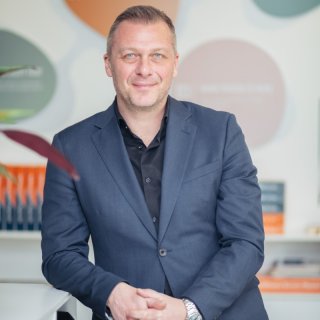
Guest blogger - Himzo Music, leader of Softhouse's office in Sarajevo.
Guest blogger - Himzo Music, leader of Softhouse's office in Sarajevo.
You may also like...
All posts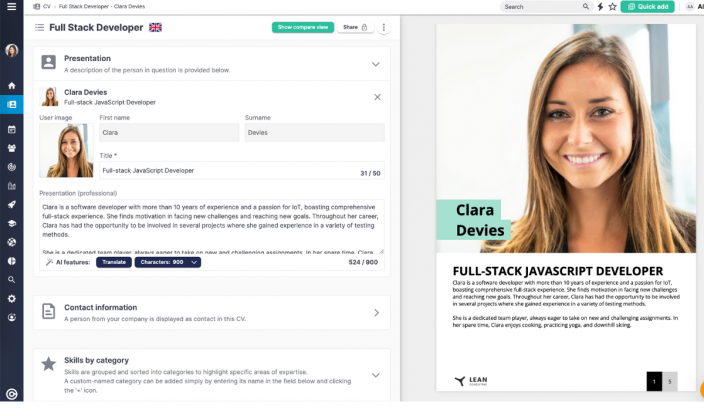
Apr 09 2024 · Cinode, Consulting
Your Consultant Resume on Autopilot with AI Support

Mar 28 2024 · Consulting
6 Easter Eggs to improve your Consultancy

Mar 26 2024 · Cinode, Consulting
8 Important Reasons to Expand Your Network of Subcontractors and Partners – And How to Do It!

Mar 19 2024 · Consulting
The hybrid consultant creates greater value for the customers, themselves, and the consulting company

Mar 12 2024 · Consulting
Soon we all have to become hybrid consultants
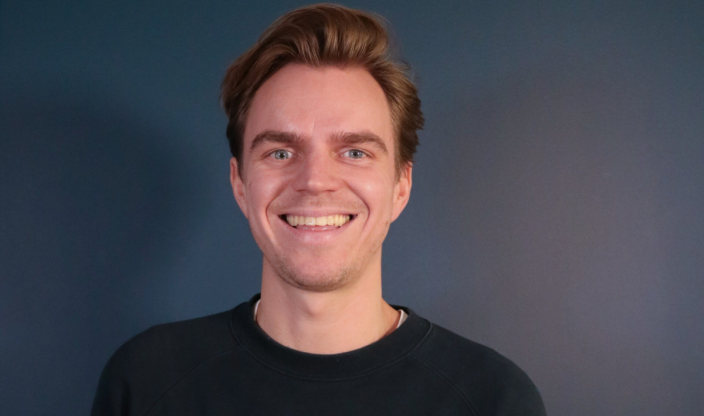
Feb 08 2024 · Consulting, Entrepreneurship
The advantages of digitizing your consulting process
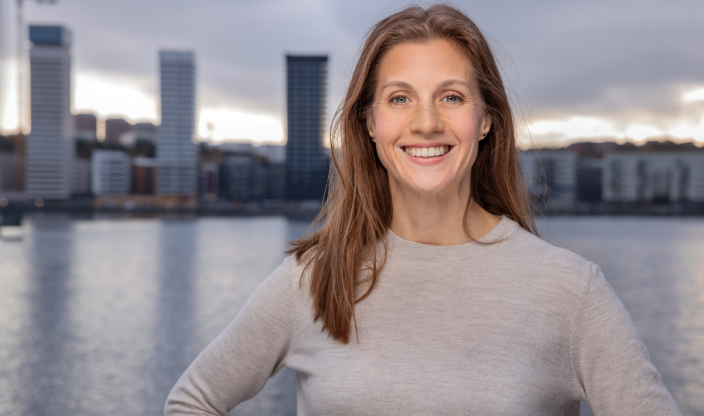
Jan 31 2024 · Consulting, Entrepreneurship
Are you swimming in the red or blue ocean? Dominate your market through a “Blue Ocean” strategy

Jan 25 2024 · Consulting
How to Reduce Bench Time in Your Consulting Firm
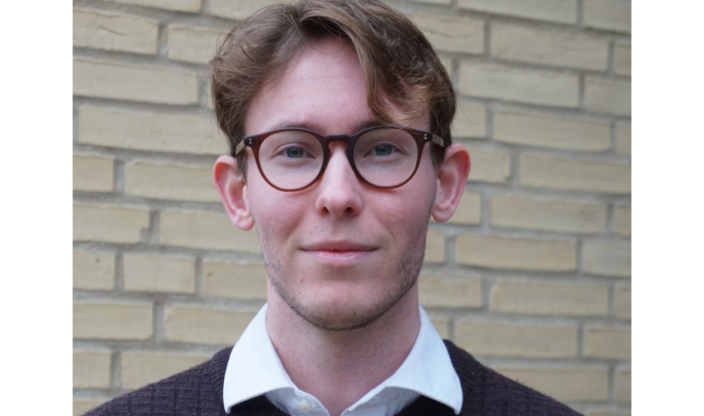
Dec 06 2023 · Consulting, Entrepreneurship
AI – an impending shift within the junior consulting profession
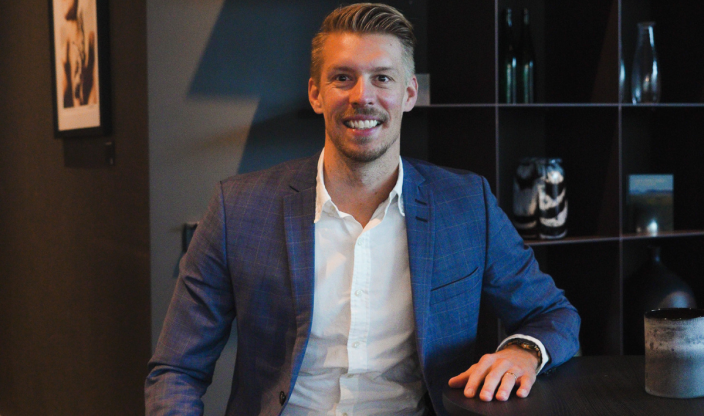
Nov 23 2023 · Consulting, Entrepreneurship
Being kind at work pays off
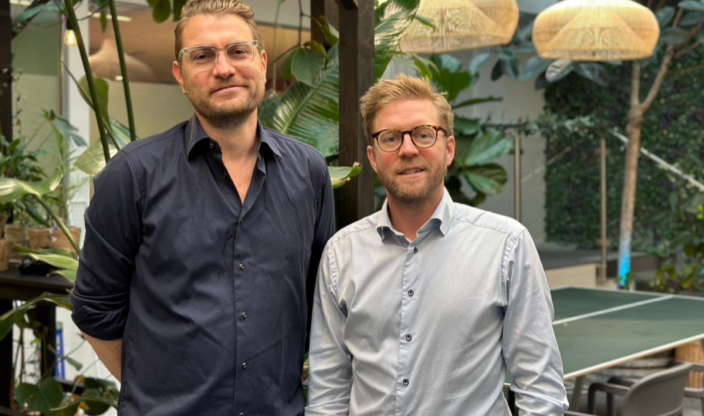
Nov 08 2023 · Consulting, Reference case
Redeploy Group expands the offer with data and AI services and aims for Nordic expansion

Oct 31 2023 · Consulting
